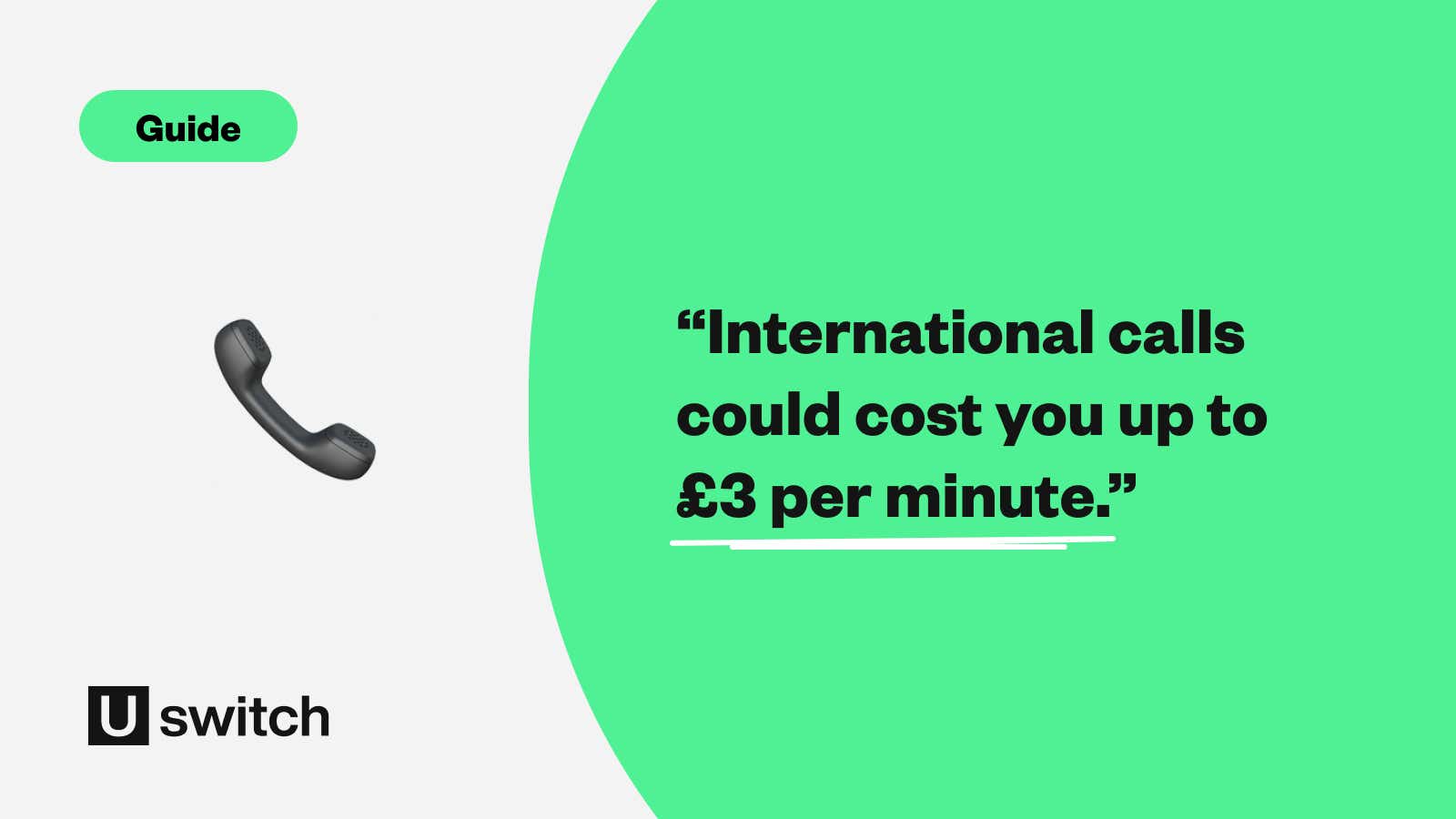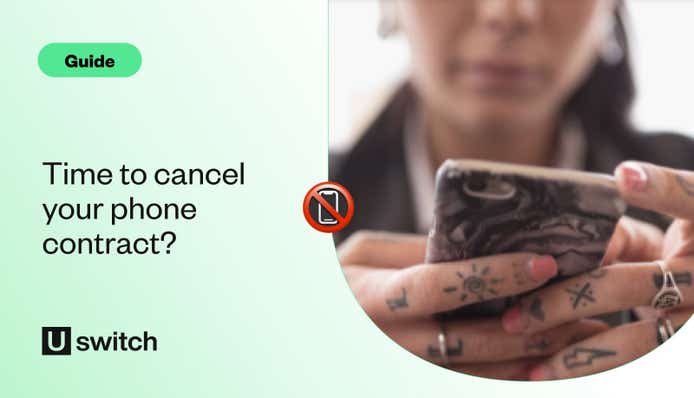How much do international calls from the UK cost?
Making calls on a mobile to loved ones and friends overseas can cost an arm and a leg.
Need to call China? That could cost you as much as £3 per minute. Maybe you’ve got friends in India? Depending on your network, ringing them for a chat may set you back £1.50 per minute.
In this guide, we’ll share money-saving tips and examine how to avoid high prices and call overseas without blowing a hole in your budget.
Along the way, we’ll examine SIM plans from networks that specialise in cheap international calls. Some of these feature a monthly allowance of overseas calls or can trim the cost of international calls to a few pennies per minute. Even to far-flung locations.
We’ll also look at the add-ons from major networks that give you an allowance of overseas calls for an additional monthly outlay.
We’ll also examine the pros and cons of Wi-Fi calling services, such as Skype or WhatsApp, which allow you to make calls using your 4G or 5G allowance.
Looking for advice about using your phone abroad instead? Take a look at our guide to roaming charges.
International SIMs vs international calling add-ons: what's the difference and what's better?
If you’re signed up to a major UK network and you don’t want to pay sky-high rates for international calls, you can sign up for an international calling add-on, such as Vodafone’s International Saver add-on or O2’s International Bolt-On.
For an extra monthly outlay, an international calling add-on will either cut the cost of calling overseas to a few pennies per minute or get you a designated amount of inclusive minutes to overseas numbers.
Generally, an international calling add-on will add between £3-£15 per month to your bill.
These prices aren’t considered to be bad value. But they’re not your only option. And if you’re keen to keep costs down, they may not be your best option either.
That’s because some networks, such as Lebara and LycaMobile, include generous amounts of overseas calls as part of your monthly calls allowance.
What’s more, these networks’ monthly contract prices are in line with major networks. So, an international SIM can work out significantly cheaper than the combined cost of a mobile contract with a major network and an overseas calls add-on.
International SIMs: what do you get?
The range of international SIMs from Lebara and LycaMobile is enormous.
Almost all their international calling SIMs operate on a rolling contract basis, so you’re free to cancel with 30 days’ notice. Most will also include calls to UK mobiles and landlines, plus data and text allowances.
What’s not included are calls to premium rate numbers in the UK and overseas and calls to customer support, utility companies and similar services.
You also won’t get the kind of customer incentives, such as O2 Rewards or EE tickets, that you get when you’re with a better-known major network. But you may decide that’s a small price to pay for low-cost international calls.
Among the international calling SIMs you can pick from are:
SIMs that get you inclusive or cheap international calls to a single country of your choosing.
Regional SIMs that entitle you to inclusive calls to a range of countries in a particular part of the world. For example, Asia or Eastern Europe.
SIMs that include a set amount of call minutes that you can use to call hundreds of locations worldwide. Naturally, these tend to be more expensive.
Keenly priced, student-friendly SIMs aimed at young people from overseas studying in the UK.
What’s right for you depends on your usage habits and how many calls you make to overseas locations. And, of course, which country or countries you want to call.
International calling add-ons
All major networks offer international calling add-ons, which you can sign up for whenever you like. And opt out just as easily, with 30 days’ notice. As noted above, these typically add between £3-£15 to your monthly bill.
It’s worth noting that while these typically include international calls to mobiles and landlines, you’ll still be charged for calls to premium rate numbers and other non-geographic numbers, such as customer service helplines, government bodies, utility companies and banks.
You should also be aware that the maximum call duration is usually two hours, after which point out-of-bundle call rates apply. So, if you want to carry on speaking and not pay through the nose for the privilege, you can simply end the call and then redial the number.
Some standout add-ons we noticed include:
O2 International Bolt On. Priced from £3 per month, you can call international mobiles and landlines in over 200 countries.
EE The International Pack. Gets you 1,000 international minutes to 50 countries, including the US, Poland and India. All for just £11.40 a month, which is much more affordable at 1.14p a minute.
Three Call Abroad. £5 a month gets you 100 international minutes to 55 countries. Up it to unlimited minutes for just £10 a month.
Vodafone International Saver. Also, for £5 a month, Vodafone gives you 100 minutes to 100 countries, with options to upgrade to more minutes and more countries with larger, more costly plans.
Some major networks don’t offer international calling add-ons but compensate with cheap pay as you go call rates for overseas destinations. iD Mobile, for instance, allows you to call the USA for £0.0600 per minute to landlines and mobiles. Or call landlines and mobiles in India for £0.02 per minute.
International calls using the internet / VOIP: pros and cons
VOIP services such as Skype, Viber and WhatsApp allow you to make international calls over the internet, using your home Wi-Fi or 4G or 5G mobile internet connection.
The advantages of these services are:
1) You won’t be paying extortionate out-of-bundle international call rates.
2) You don’t need an international minutes allowance to make ‘free’ overseas calls.
3) As long as you’ve got a Wi-Fi or mobile internet connection, you can make the calls.
But there are downsides.
For one thing, if you’re relying on Skype or WhatsApp to make international calls, you’ll have to be in the range of 4G or 5G signal or be connected to Wi-Fi. The person you’re calling must also be connected to the internet.
For another thing, if you are using 4G or 5G, you will be eating into your data allowance.
And given that data is what you’re really paying for on most contracts and can be quite tightly rationed on some networks, it may be smarter and more cost-effective to hang on to your allowance and save it for data-reliant services, such as web browsing and streaming video.
I just want to make the odd overseas call. Should I use my landline or mobile?
That depends on where you’re calling and which landline provider and mobile network you’re signed up with. But using your landline is usually cheaper if you’re calling at standard rates and haven’t got an international calls bundle for your landline or mobile phone.
For instance, if you’re a BT customer and call a landline or mobile in the USA at its standard rate, you’ll pay 46p per minute. But if you were signed up to Vodafone and made a landline or mobile call to the same location, it’d set you back a hefty £1.50 per minute. That’s some difference.
We’d recommend you look at your providers’ call rates first. And keep a close eye on how much you make overseas calls.
If you’re underestimating your usage, it may be worth considering getting an international calling add-on from your network to save money. Or maybe even switch to a network that includes international calling minutes as part of monthly allowances.
Compare our pick of the best SIM only deals.




